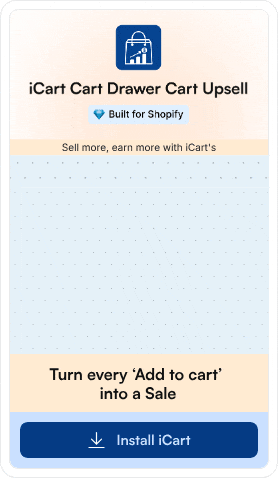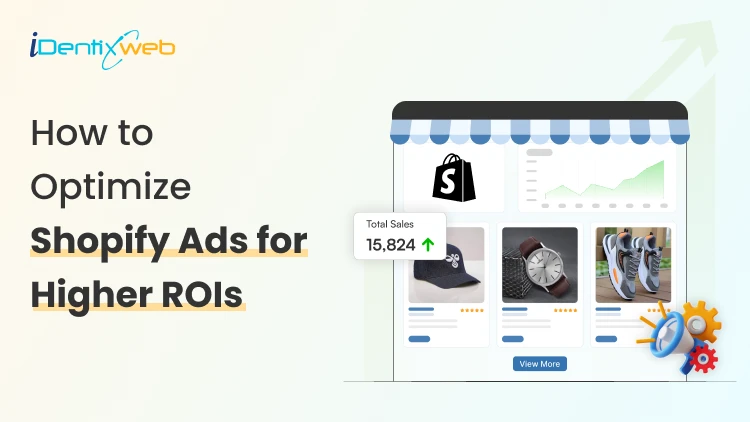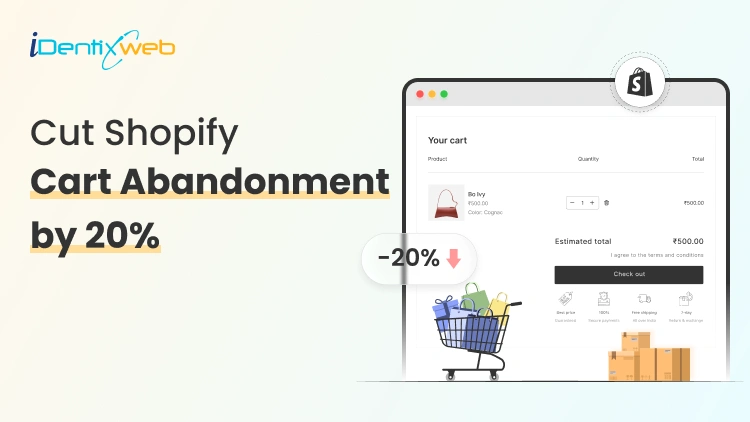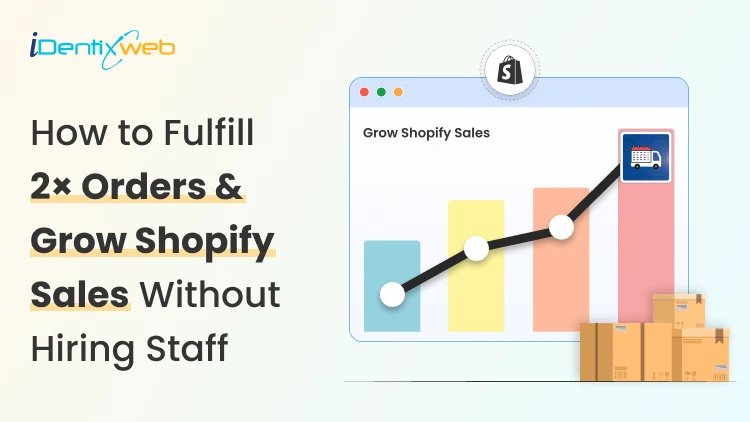
Changing technology, customer behaviour, and the rise of digital channels have made B2B businesses rethink their strategy. New B2B ecommerce trends are catching up to them.
B2B buyers are expecting smooth and digitally rich experiences in their buying journey. Acknowledging this shift, it’s important to identify more B2B trends for businesses to stay ahead of the competition.
The B2B ecommerce trends in this article will help you stay up to date to increase your sales in 2026.
First, let’s have a look at some growth statistics of the B2B ecommerce business.
Important B2B Ecommerce Growth Stats
- Asia has 80% of the B2B ecommerce market, with China leading the B2B ecommerce share of $1.2 billion.
- According to McKinsey’s report, B2B ecommerce is the number 1 effective sales channel.
- The amount of revenue generated by B2B businesses through digital channels has also increased. It has come from 32% in 2020 to 56% in 2025.
- Emarketer’s research shows that sales from B2B ecommerce will reach $3 trillion by 2028
The following B2B ecommerce trends are collected from reports from leading authorities in the B2B space. Adapting these trends will be beneficial for your B2B ecommerce business growth.
Top B2B Ecommerce Trends in 2026
Upgrade Your Ecommerce Platform
Outdated platforms will limit your flexibility to integrate modern B2B solutions. Your online platform is key to not only selling to B2B businesses but also integrating the B2B marketing trends.
More and more businesses are upgrading their online presence with Shopify Plus and BigCommerce. These platforms have built-in features for B2B businesses. These include bulk orders, contract management, and custom pricing.
The reason this is becoming a trend is because of digital integration. Many digital tools can be integrated to improve your B2B sales and marketing efforts. You can only achieve this by moving beyond traditional systems.
Hyper Personalized Shopping Experience
According to Forrester’s research, 72% of B2B customers expect personalization when using any product or service. Modern B2B buyers want their online shopping experience to be quick, seamless and personalized.
B2B companies are creating these personalized messages with the help of artificial intelligence. Past customer interactions and predictive analysis are studied to tailor messages in sales, marketing, and customer service. This helps increase customer loyalty and experience.
Make Use of Social Media Platforms
Even though social media is considered a B2C marketing strategy, B2B companies are getting into the act. They have figured out that their customers are searching for products and services on social media platforms as well.
Platforms like LinkedIn and YouTube have become powerful tools to engage B2B buyers. YouTube has become a great platform to share product demo videos. LinkedIn is widely used to share customer testimonials and product reviews. AI tools for LinkedIn are now helping B2B marketers automate content creation, optimize posting schedules, and analyze engagement metrics to maximize their reach and impact on the platform.
Platforms like Facebook are also used by B2B companies to run video-targeted ads. It’s not a compulsion to use all social media platforms. Upload posts, run ads, and analyze which platform your customers are on.
Integrate AI Into Your Workflow
This is a no-brainer. AI is one of the common B2B trends. 32% of B2B companies have already implemented AI into their organization. These B2B companies have integrated AI in a variety of ways.
- Predictive analytics to forecast the demand and supply of products.
- AI chatbots to automate customer support.
- AI for competitive intelligence to analyze market trends and competitor activity, enabling smarter business decisions.
- Personalized product recommendations to increase revenue through upselling & cross-selling.
- Generative AI to write product descriptions, emails, and content for landing pages.
B2B Marketplaces are Becoming Sales Drivers
There are more than 750 marketplaces and counting. B2B buyers are preferring marketplaces to do their research before buying anything. B2B marketplaces like Alibaba and Amazon Business help businesses to stand out among a crowd of buyers.
Marketplaces are great for helping B2B businesses tap into a new market without a huge investment in building a business website. Plus, you have already acquired a readymade set of customers who are looking for what you are selling.
The only downside is the limited control over pricing and payment structure. Conduct complete research on the B2B marketplace before creating a seller account.
More Businesses are Building Custom Mobile Apps
More B2B brands will enter the custom mobile app market this year, thanks to the rising trend of a mobile-first approach. Custom mobile apps for brands are no longer a novelty. The ease of mobile app development has made it beneficial for B2B brands to build their own shopping app.
Mobile features that impact B2B purchasing include:
- Price comparison tables.
- Built-in messaging to connect the B2B buyers and the sellers
- Store location management
- Voice search for product discovery
- Online wallets for payment gateways
- Push notifications for reminders
Before building your own app, consider these two things.
- Device preferences of your customers.
- How the app can be integrated with your business website.
Dynamic Pricing is Getting Common
Dynamic pricing is the ability to adjust prices based on customer demand, market trends, and inventory levels. This strategy of pricing helps B2B businesses stay ahead of the competition. It also helps to increase their revenue during different sales cycles.
Dynamic pricing is also a great tool in customer loyalty programs. Based on the customer’s purchase history, brands can adjust their pricing by providing discounts. Although dynamic pricing has its benefits, it requires clean and real-time data to show results.
Ecommerce platforms like Shopify and BigCommerce can be integrated into your CRM. This helps with price adjustments significantly, as these tools provide live customer data to work with.
Not all these B2B ecommerce trends may work for your business. Let’s see how to evaluate the trends that work best for your business.
How to Evaluate B2B Trends for My Business?
When researching B2B trends, ask these questions before implementing them.
- Do these B2B ecommerce trends solve the clear problems of my business?
- Can this trend be integrated seamlessly into my business without any business interruption?
- How much will it cost me to add this trend to my workflow?
- Do I have individuals or a system to support this B2B trend?
Suppose you have clear answers to these questions. You can think of implementing new emerging B2B trends into your business.
Future of B2B Ecommerce - 2026 and Beyond
As we go deeper into 2026, keep these B2B ecommerce trends in mind for business growth. The future of B2B ecommerce lies in analyzing customer data. This is because personalization and different touch points like social media and marketplaces are becoming common with B2B brands.
Stay up to date with industry reports from Salesforce, Deloitte, Forrester, and Gardner to keep up with the trends. Perform competitor analysis to keep an eye on emerging B2B marketing trends. If a B2B business has successfully implemented a strategy, it should be worth exploring for your business.
Just be on top of B2B trends so that you don’t get left behind in this competitive market.
FAQs
1. What is the future of B2B ecommerce?
Personalization and automation are the clear future of B2B ecommerce because of AI. Different customer touchpoints, like marketplaces and social media, are not just for B2C. B2B is slowly adapting to these as well.
2. What are the B2B ecommerce trends of 2026?
Adapting AI, hyper-personalization, B2B marketplaces, social media, dynamic pricing strategy, custom mobile apps, and upgrading your online presence with a B2B ecommerce platform are the common trends in the B2B space.
3. How to stay up to date with the latest B2B ecommerce trends?
There are two ways to keep up with the current B2B trends. Read industry reports from Forrester, Gardner, and McKinsey and perform competitor analysis.
4. How to select a B2B ecommerce platform?
Note down your target audience, budget, required features, and integration options to select the best B2B ecommerce platform. Shopify Plus, BigCommerce, and Salesforce B2B Commerce are popular options.
5. How can AI be used in B2B ecommerce?
AI is one of the emerging B2B marketing trends. AI can be used for dynamic pricing, personalization and producing content for websites and ad copies.







About the author
Vineet Nair
Vineet is an experienced content strategist with expertise in the ecommerce domain and a keen interest in Shopify. He aims to help Shopify merchants thrive in this competitive environment with technical solutions and thoughtfully structured content.